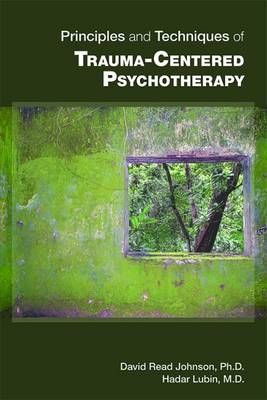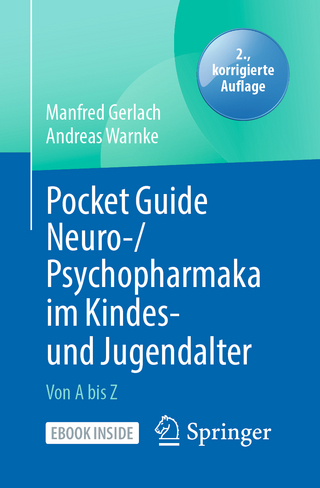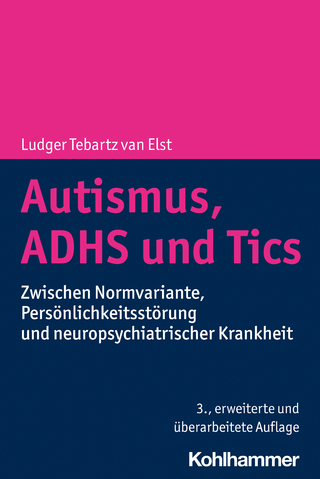
Principles and Techniques of Trauma-Centered Psychotherapy
American Psychiatric Association Publishing (Verlag)
978-1-58562-514-7 (ISBN)
The book has many useful features:
• The book stresses technique, not theory, and is appropriate for clinicians of any theoretical orientation, including cognitive-behavioral, psychodynamic, humanistic, and sociocultural. Similarly, the book will be useful to a range of clinicians, from psychiatrists and psychologists to social workers, marriage and family therapists, and professional counselors.
• Dozens of detailed clinical case examples are included that illustrate what to say and what not to say in the wide variety of situations that clinicians are likely to encounter.
• Down-to-earth strategies are included for setting up the proper trauma-centered frame for the therapeutic work, conducting a detailed trauma history, exploring the effects of the trauma on present-day behavior, and handling the inevitable disruptions in the therapeutic relationship.
• Valuable features include study questions, which conclude each chapter, and appendices, which provide a template for a consent-to-treatment form, a traumatic life events questionnaire, and a clinical assessment interview.
In many long-term therapies, regardless of therapeutic orientation, a moment comes when the clinician or client realizes it is time to engage in a detailed exploration of traumatic events. Principles and Techniques of Trauma-Centered Psychotherapy is for that moment, and its rich clinical transcripts and vast detailed techniques will equip the therapist to embark on that process confidently, humanely, and effectively.
David Read Johnson, Ph.D., is Co-director of the Post Traumatic Stress Center in New Haven, Connecticut and Associate Clinical Professor in the Department of Psychiatry at Yale University School of Medicine. He was formerly the Unit Chief of the Specialized Inpatient PTSD Unit at the National Center for PTSD, VA Medical Center, in West Haven, Connecticut. He is the co-author (with H. Lubin) of Trauma-Centered Group Psychotherapy for Women (Francis & Taylor, 2008), and co-editor (with N. Sajnani) of Trauma-Informed Drama Therapy: Transforming Clinics, Classrooms, and Communities (Charles C Thomas, 2014), as well as numerous articles on trauma treatment. Hadar Lubin, M.D., is Co-director of the Post Traumatic Stress Center in New Haven, Connecticut and Assistant Clinical Professor in the Department of Psychiatry at Yale University School of Medicine. She was formerly the Unit Chief of the Specialized Inpatient PTSD Unit at the National Center for PTSD, VA Medical Center, in West Haven, Connecticut. She is the co-author (with D. Johnson) of Trauma-Centered Group Psychotherapy for Women (Francis & Taylor, 2008), as well as numerous articles on trauma treatment.
About the Authors
Acknowledgments
Preface
Chapter 1. The Developing Cultural Context of Trauma-Centered Psychotherapy
Chapter 2. Axioms of Trauma-Centered Psychotherapy
Chapter 3. Establishing the Trauma-Centered Frame
Chapter 4. Principles of Trauma-Centered Psychotherapy
Chapter 5. The Four Main Techniques
Chapter 6. The First Session
Chapter 7. Continuing the Trauma History: Getting the Details and Formulating the Trauma Schema
Chapter 8. Conducting Ongoing Treatment: Decoding the Trauma Schema in Current Behaviors
Chapter 9. The Gap: When the Trauma Schema Emerges in the Therapeutic Relationship
Chapter 10. Long-Term Process in Treatment
Chapter 11. Handling the Edges
Chapter 12. Working With Clients With Dissociative Identity Disorder
Chapter 13. Working With Clients With Borderline Personality Disorder
Chapter 14. Trauma-Centered Group Psychotherapy
Chapter 15. Trauma-Centered Couples and Family Psychotherapy
Chapter 16. Adjunctive Methods
Chapter 17. Strains on the Therapist
Chapter 18. Limits to the Trauma-Centered Approach
Chapter 19. Conclusion
References
Answers to Study Questions
Appendix A: Consent to Treatment
Appendix B: Traumatic Life Events Questionnaire
Appendix C: Clinical Interview for Assessment of Trauma History
Index
| Zusatzinfo | 8 Line drawings, black and white; 13 Tables, unspecified |
|---|---|
| Verlagsort | VA |
| Sprache | englisch |
| Maße | 152 x 229 mm |
| Gewicht | 476 g |
| Themenwelt | Medizin / Pharmazie ► Medizinische Fachgebiete ► Psychiatrie / Psychotherapie |
| Medizin / Pharmazie ► Studium | |
| ISBN-10 | 1-58562-514-0 / 1585625140 |
| ISBN-13 | 978-1-58562-514-7 / 9781585625147 |
| Zustand | Neuware |
| Haben Sie eine Frage zum Produkt? |
aus dem Bereich


